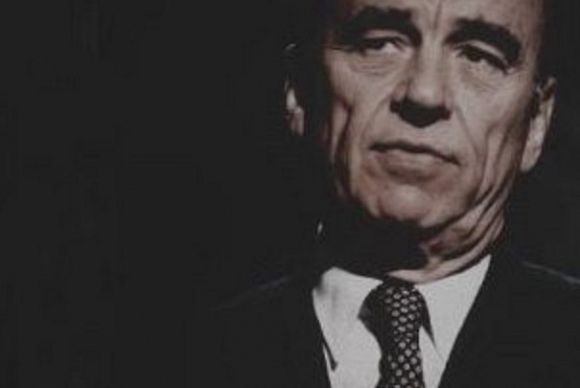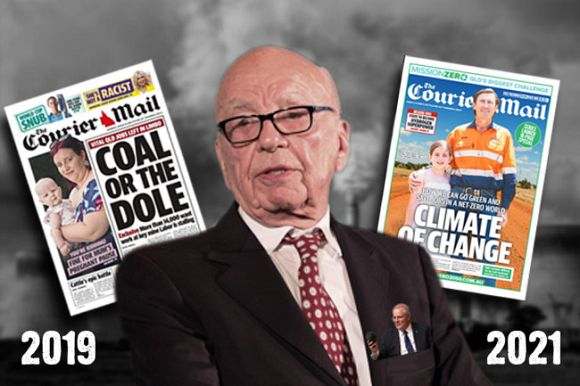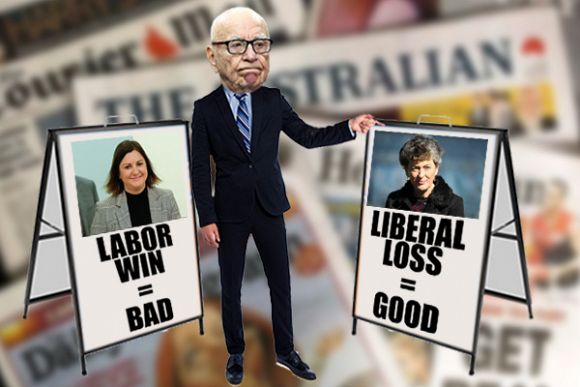Australia’s media is back-snapped broken — but don’t expect the most concentrated media industry in the world to fix itself, writes founder and publisher Dave Donovan and managing editor Michelle Pini.
TOMORROW, it will be 12 years since Independent Australia published its first article.
To be more specific, on 23 June 2010, the very first article was put up on independentaustralia.net; our beloved IA.
Independent Australia was set up because it was obvious the nation’s media was broken — even way back then.
BREAKING UP
And despite our work at IA – despite its longevity and strong popularity – and the work of other parvenu online publications, Australia’s media is still broken. Back-snapped broken.
There are three main reasons why it is broken ─ all of which stem back to just one.
Firstly, Australia has the most concentrated media ownership in the Western World. This results in fewer voices and poorer coverage of critical issues. It is a real danger to democracy.
Secondly, in Australia’s case, our concentrated media is dominated by one utterly amoral media organisation, unabashed about its power to dominate and control Australian public opinion. That makes Australia less than a full democracy.
Thirdly, Australia’s journalists are in absolute denial about not only #1 and #2, but that there is any problem with Australia’s media at all. They seem to believe they’re all doing an excellent job and that their audience doesn’t really understand journalism.
You are already reading Independent Australia, which means you are more intelligent and highly informed than most. You are already aware most of Australia’s media is concentrated in the hands of just three organisations — the Big Three: Nine, Seven and News Corp.
You will also know that one of them, News Corp, controls over 65 per cent of Australia’s newspaper circulation, along with the nation’s only cable network. You will know that this skews Australian media coverage, as the proprietors of News Corp – Rupert Murdoch and his family – have no compunction about bullying Australia's politicians and public into submission. This failed at the last election, federally, for the first time since 1973, but News Corp isn’t going anywhere.
This gargantuan dominance makes our domestic reporting unreliable. There is no question about that and it is, indeed, generally agreed upon by most authorities.
Of course, IA has reported on these issues since 2010, in significant depth and clarity.
Yet Australia’s mainstream media journalists – the ones producing this skewed reporting – seem to be utterly in denial any problem exists at all.
In fact, if anything, the divide between mainstream media journalists and their audience has gotten wider over the dozen years since IA blinked into life online, if their usual public and noisy repudiation of adverse social media commentary and other audience comments are any guide.
MEDIA BITES
It has gotten to the point where almost everyone else can see quite clearly what is going on – that Australia’s political reporting is not fit for purpose ─ yet the vast majority of our working journalists appear to be in complete denial.
Why is this so?
Well, one reason is that it would be foolish to bite the hand that feeds you. If you work for Murdoch, are you likely to bemoan the pressure editors put upon you to pursue certain stories over others, censor your articles to pursue a particular agenda, or bully you to not stray from the company line?
If you did, you would be unlikely to have a job there for long.
And over time, you become used to the money and perks of being a loyal company dog. Stockholm Syndrome sets in and you begin to love your captors. Eventually, you can’t even remember what you were like before.
But that would only cover the journalists working in the Big Three. What about the journalists outside these organisations, such as those in the ABC and the Guardian, for example? Most of them still do not acknowledge that there is any problem with Australia’s media coverage. They, in fact, almost always loudly defend those of their colleagues who happen to work for the Big Three and face public censure.
WTF?
In a recent excellent article by Dr Tim Dunlop, several journalism educators and working journalists were asked what they thought ‘non-journalists don't understand about journalism [and what] they get most wrong?’
High-profile Indigenous affairs reporter for Nine's The Age, Jack Latimore, was quoted defending his profession from the ignorant masses.
To do this, Latimore cited his own idiosyncratic “clusterfuck machine/my Dad’s a tiler” definition of journalism:
I see a lot of non-journos – and I’m talking here mostly about those who have never worked in news or researched media and comms but have a social media account with 5k-30k followers so therefore they are totally savvy media pundits – have absolutely zero appreciation or handle on the machinery of clusterfuck.
No consideration of the constraints and pressures that contribute in totality to the news product, whether at macro level, or at a more granular level in terms of article or story.
It’s like me going into my dad’s workspace when he is tiling a bathroom and going, "those really big heavy tiles on the floor would look much better on the wall and be easier to clean, and those ones surrounding the vanity should actually be the floor tiles for this job".
Gold stars to any “totally savvy media pundits” among you who might be able to decipher what this apparently "professional" communicator was attempting to convey.
Clusterfuck indeed, Jack.
THE CLUB
While it might be convenient to think working journos like "Clusterfuck" Jack are just trying to defend their much-maligned profession and support their professional colleagues, the truth is much more banal. The real reason they don’t see the problems with journalism in Australia is that they are trained not to do so. Even before they enter the profession, usually with employment in one or another of the Big Three, journalists these days routinely acquire journalism degrees, where they are mostly taught by – you guessed it – former journalists who spent most of their previous careers working for the Big Three.
It is like a perpetual stew. It keeps bubble-bubbling and boiling away, and people go and dip the ladle and fill a new bowl, and add new ingredients to it from time to time, but it always retains the same essential flavour ─ one that gets increasingly overpowering and rancid with time.
YOU CAN’T SIT WITH US!
Secondly, with very few exceptions, journalism courses do not cover the structure of the industry, the legislative loopholes that allow the world’s most profoundly concentrated media ownership or, indeed, even any mention of Voldemort, AKA Rupert Murdoch. Not even in most ethics subjects, incredibly enough.
Those lecturers who dare to question – or even more unlikely, criticise – the system, are essentially chased out of it. We have witnessed this in the case of former Professor of Journalism Dr Martin Hirst, our former political editor, and the brutal Murdoch media campaign against him that eventually cost him his sinecure. He is an outstanding journalist and the author of about 12 insightful textbooks on journalism. What happened to him is an outrage.
At the same time, the endless co-promotion of the Big Three continues in such a way as to suggest that such a skewed worldview is perfectly normal, further drowning out any dissenting opinions, if only by omission.
Like goats to the slaughter, kids just out of journalism school are dribbled into the media profession, trained mostly by News Corp and Fairfax (now Nine) staffers, who subtly groom them for a career of meek compliance ─ until they can’t stand it anymore and quit. As they nearly always do. But never mind, there’s always fresh meat to add to the bubbling stew.
IT’S NOT US, IT’S YOU
Among those interviewed in Dr Tim Dunlop’s abovementioned report, note the comments of Melbourne University journalism ethics lecturer, Professor Denis Muller, who worked for 27 years at The Age, prior to commencing his very illustrious career in academia:
The key thing [non-journalists don’t understand], I reckon, is what makes news from a journalist’s perspective. They don’t know about news values, those very well-defined characteristics that turn events into news, and which journalists themselves often just feel in their water.
Journalists instinctively know this … say they feel it in their water. Most of them couldn’t articulate it even to themselves. I certainly couldn’t have, even as news editor of the SMH.”
Journalists don’t talk about news values as I just have, but they know a story when they see one.
It is explicable outside the job, but you’d probably need an academic to explain it because the vast majority of journalists have neither the time, the inclination, nor the intellectual background to equip them to do it. Moreover, the layperson would find the whole explanation recondite beyond belief.
To paraphrase Dr Denis “Denuto” Muller, “We journos don’t know what a good story is, but we know it when we see it! It’s like, I dunno… the vibe!”
How very “recondite”, Professor.
THE INEXPLICABLE PROFESSION
Why Australia's journalism is so bad and why the people practising it are utterly oblivious to this obvious detail is a complicated topic. One we intend to discuss this in much more detail next week in this very forum, at length, including further examples. For now, suffice to say, none of the experts quoted by Dr Dunlop mentioned Murdoch, or Australia’s singular media concentration, or, indeed, provided any meaningful insights whatsoever into why Australians feel poorly served by their mainstream news media.
Even more concerningly, none of those interviewed by Dr Dunlop appears to have a clear understanding of why journalism even matters. Why it is called the Fourth Estate. None even vaguely mentioned the critical part journalism plays in a fully functioning democracy: to stand as a check and balance against the other estates, by informing the public and speaking truth to power, without fear or favour.
In Australia, it seems, journalists, if they think about their job at all, see it as being more in the field of entertainment. Content providers. Click generators. Savvy and connected operators who know how to conjure up a “good yarn”. It is depressing.
Last word, for now, goes to former ABC news supremo Alan Sunderland:
‘When people express opinions about journalism it's usually about as useful as someone saying, "here's what I don't like about people, or animals, or Australians".'
Thanks, Alan! That statement might also apply to journalists who express opinions about why almost everyone thinks their profession is absolutely useless.
This editorial was originally published as part of the Independent Australia weekly newsletter. These editorials are usually only available to subscribers and may be read online in the IA members-only area.
You can follow founder and publisher Dave Donovan on Twitter @davrosz and managing editor Michelle Pini on Twitter @vmp9. Also, follow Independent Australia on Twitter @independentaus and on Facebook HERE.
 This work is licensed under a Creative Commons Attribution-NonCommercial-NoDerivs 3.0 Australia License
This work is licensed under a Creative Commons Attribution-NonCommercial-NoDerivs 3.0 Australia License
Support independent journalism Subscribe to IA.

Related Articles
- News Corp's shoddy 'journalism' again dominates Press Council complaints
- Liberal or Labor, News Corp will back the winning team
- How Murdoch manipulates the climate of Australian politics
- Murdoch and the big Australian lie
- Scott Morrison shielded by Murdoch protection racket

















